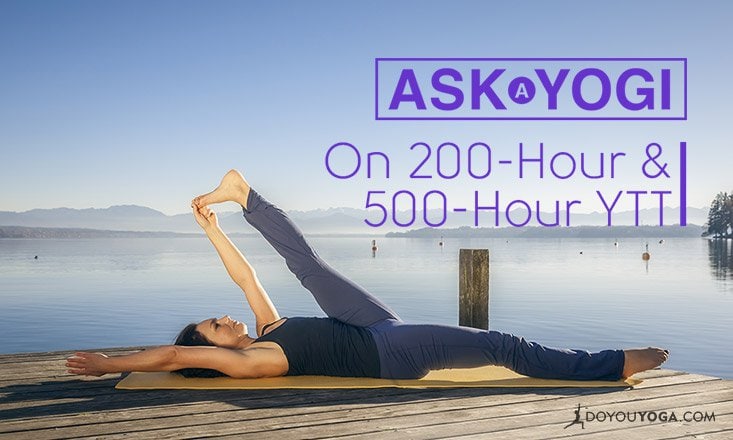So you’ve just become a yoga teacher. You’ve got your gigs. You’re wondering what’s next?
The International Yoga Alliance has put out such distinctions as 200RYT and 500RYT, but what do they really mean?
Does it make a difference if your yoga teacher has more letters or higher numbers after his or her name?
Let’s explore.
200-Hour Yoga Teacher Training
A 200-hour yoga teaching certificate means that your yoga teacher has completed all of the necessary elements as listed by the International Yoga Alliance to become a certified teacher. This means there has been some study into yoga philosophy, anatomy, postures, and history. The Yoga Alliance outlines a certain designation of hours of study that must be placed in each of these subjects in order to achieve the certificate of Yoga Teacher.
To me, a 200-hour training is a ripple on the surface of what is vast ocean of information on the practice of yoga. 200 hours is like an introduction, a chance to test the waters and get our tosies wet before deciding to jump in or not.
If any yoga teacher out there feels that after a 200-hour training they know all there is to know about practicing and teaching this ancient tradition, find another teacher.
500-Hour Yoga Teacher Training
A 500-hour training is the next level. It goes more in depth into the study of philosophies, sutra, and often there are other specialized modules involved as well.
Some 500-hour trainings will be focused on a specific area of yoga, for example: advanced studies in Yin yoga, advanced anatomy courses, a specialty in inversions, and so on. In addition, a 500-hour yoga teaching certification notes that the yoga instructor has taught for at least 100 hours.
Further, teachers with a 500-hour yoga teaching certification can offer continuing education in the form of workshops or classes to yoga instructors of all levels.
All this being said, the International Yoga Alliance follows the honor system. Sure it would be great to assume that all yoga teachers are extremely honorable. But it is up to each individual school to register their own curriculum that fits in with Yoga
Alliance standards.
It is also up to each individual yoga instructor to register his or her training, credentials and teaching hours in order to be titled with a 200- or 500-hour distinction.
Is Your Teacher Passionate About Yoga?
The most reliable way to really know if your yoga teacher is qualified and talented is through word of mouth. Ask around. Inquire about how much experience your yoga teacher has or ask about their training.
It will immediately show through if they are passionate, well educated and excited about teaching yoga. Words on paper do not mean a whole lot if we don’t have the actions to back them up. Ultimately in yoga there are no exams to pass. There aren’t too many benchmarks, and no one is failing out of yoga teacher training.
If as a yoga teacher it is important to you to seek out extra education then by all means, go for the next level certification. If as a student you really want a teacher who has certain credentialing there are plenty of instructors out there who will have it.
A well educated yoga teacher is someone who keeps learning, who is passionate, and who continues to explore their practice, regardless of their official documentation on the subject.


